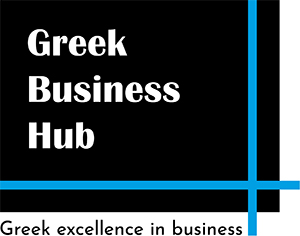
Keeping up with the most recent hotel marketing trends and attracting consumers through marketing can assist hotel owners in maximizing the number of bookings and revenue generated.
Only a few units, particularly among the largest organizations, anticipate these changes, enhance their offerings, and develop new products that are more tailored to the millennials who are replacing the baby boomers, on whom we had based our iconic models.
Millennials seek authentic and luxurious travel experiences that can be shared. Generation Y is transforming the luxury travel industry. Well-being is not only tied to what they own (property) or can purchase, but they also seek new symbols through the circumstances and complexities of their lived experiences.
Millennials are 23% more interested in international travel than elder generations and account for up to 20% of all international tourists. 72% of millennials would rather spend their money on experiences than on material goods.
With 23% of millennials more likely than other generations to travel frequently, the travel and hospitality industry is anticipated to benefit from the $1.4 trillion these younger, affluent travelers spend annually.
This increase in millennial expenditure will not, however, benefit everyone in the tourism industry. Specifically, many luxury hotels and airlines encounter strategic obstacles. Long growth cycles require businesses to make crucial investment decisions today if they wish to remain competitive over the next decade.
As a result, luxury hotels and high-end travel companies are reevaluating their marketing strategies in order to appeal to affluent millennial consumers and provide experiences that go beyond a plane ticket or hotel room.
Arguments that are naive or defective.
Several flawed arguments are used to justify the creation of luxury lodgings on a nearly constant basis.
First, we believe that a luxury hotel’s presence alone will attract an upscale and international clientele. If it were true, it would be stunning. Adding an international sign for a well-known chain will not alter this fact. In this industry, supply does not affect demand. This clientele travels to a destination for a purpose (business or pleasure) and, in this instance, remains at the hotel. You do not travel to a city because of its hotels. Therefore, it is necessary to establish, if possible, sustainable attractiveness prior to the launch of hotel projects.
There is also the famous saying, “you must open a luxury hotel because none currently exist.” There may be only one reason (market reality) why there is not. The possibility of hosting VIPs, which is extremely uncommon for a destination, is insufficient to expect a return on investment. We need additional customers. It is preferable to consider this before constructing a vast number of new hotel units than to discover after the fact that there was never sufficient demand.
We must not neglect that hotel operators and owners increasingly desire a four- or five-star rating for personal reasons, prestige, and to differentiate themselves from competitors. Forgetting that this is a genuine market position with accompanying image, prices, and services. Such precise requirements. Even though only 14% of hotel clients use star ratings as a selection criterion, we know when we are in a luxurious establishment.
Some believe that a castle, a beautiful ruin, or a historic mansion situated in a large park or beautiful landscape could be converted into a wonderful, costly, and renowned hotel. This is frequently the case in terms of the image. But even in this case, for what clients and what profitability? Because we frequently fail to quantify potential demand. There will always be some consumers who desire a luxurious stay, but how many? Typically, they are insufficient to make the enterprise profitable.
As a result, the hotel lacking consumers will lower its prices, relative to all initial expectations, and will compete poorly with other hotels in the area, dragging down the entire market. Eventually, this results in a local price war and the demise of hotel companies. Among them, high standards exist for this luxury. Consequently, the operator or proprietor will be tempted or compelled to reduce his operating costs and the quality of his services.
So, what is the answer?
Hotel marketing is an umbrella term that encompasses the various marketing strategies and techniques hotels employ to promote their business and leave a favorable impression on consumers. Essentially, it is a strategy to make a hotel as appealing as possible in order to entice the greatest number of guests.
In the hotel and hospitality industry, one of the greatest obstacles that individual hotels must overcome is competition. Marketing is essential for hotels because it allows them to promote their property, highlight its distinct features, distinguish themselves from competitors, and determine the benefits of staying there.
Ultimately, staying abreast of the most recent hotel marketing trends and attracting consumers through marketing can assist hotel owners in maximizing the number of direct bookings they generate and the revenue they generate.
Therefore, upgrade your accommodations, position them where they should be in the market, reexamine your branding, add the services that new generations of customers are seeking, and transition from all-inclusive to all-in-house… And finally, strike the market with exclusive, intelligent, and innovative digital campaigns.




